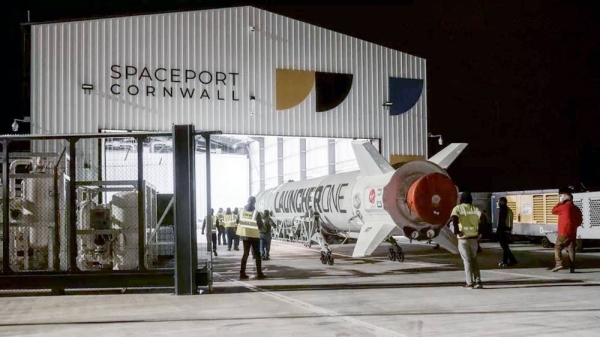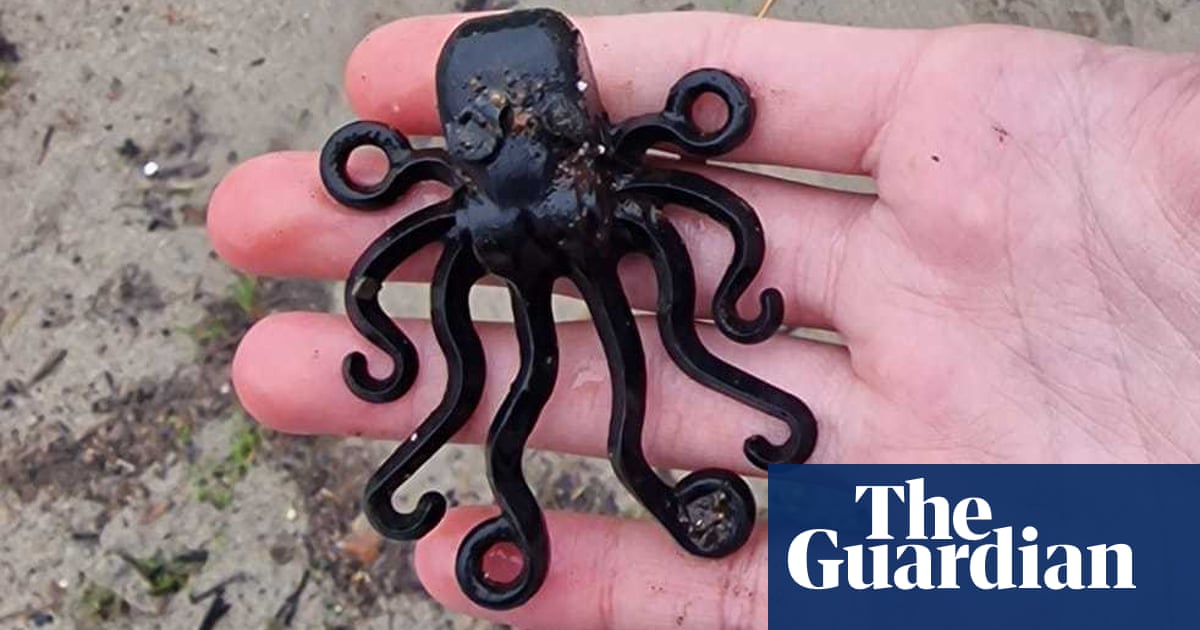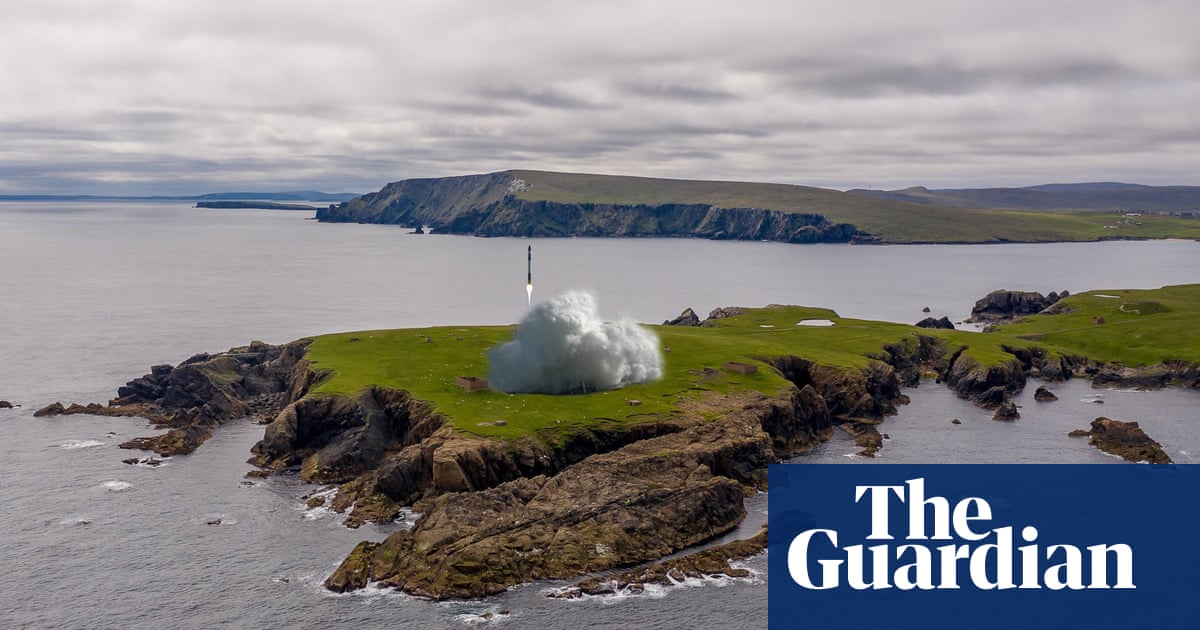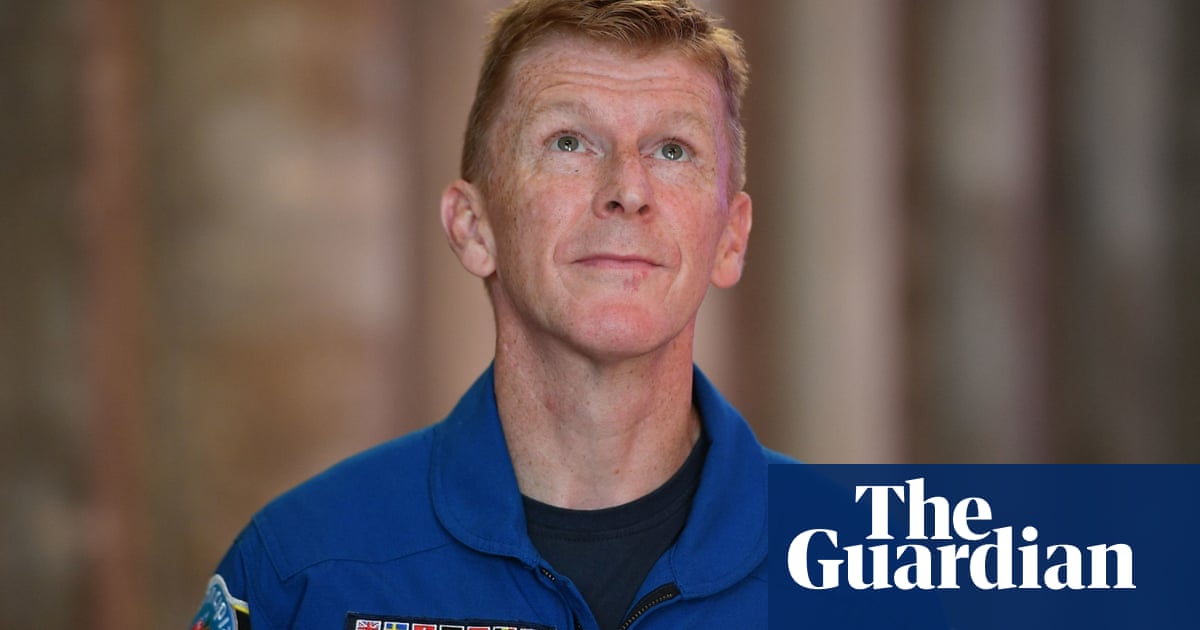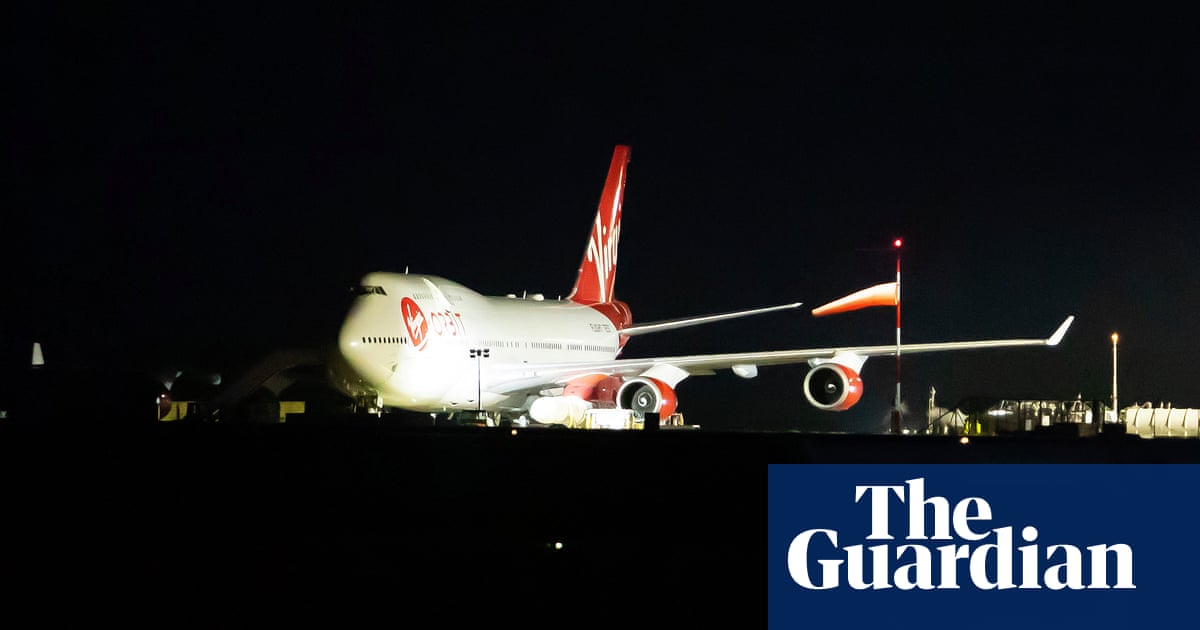
A historic rocket mission has set off from Cornwall as a specially converted Boeing 747 heads out over the Atlantic carrying a payload of nine satellites that it will propel into orbit.
Virgin Orbit’s Start Me Up mission is the first launch of satellites from European soil and is being heralded as the start of a new space era for the UK.
There was a festival atmosphere at Spaceport Cornwall, near the surfing town of Newquay, as about 2,000 space fans viewed the launch of Cosmic Girl from around the airfield, while VIPs toasted the mission with Cornish sparkling wine from the nearby Camel Valley.
Matt Archer, the director of commercial spaceflight at the UK Space Agency, said: “There was a space race for this moment, as we wanted to beat Norway and Sweden for the first orbital rocket launch from Europe. The need for speed meant we had to do it in January with the winter weather, but we have shown that if we can do it in January we can do it at any time of the year.”
Among the spectators who watched as the plane took off to the sounds of crowds cheering and the Rolling Stones’ Start Me Up blaring over the speakers was Felix Gatfield, 14, who runs a YouTube channel about space and missed his mock exams – and his usual bedtime – to attend. He said: “It’s a real moment for the UK space industry. It’s amazing being so close.”
The British astronaut Tim Peake said: “Today’s mission is a groundbreaking moment for the UK space industry and shows the great strides our nation is making to compete on a global stage.”
The launch is seen as a missing link in the UK satellite industry. Until now, the UK has been strong at manufacturing satellites and interpreting the data they yield, but has not been able to launch them.
The UK science minister, George Freeman, said: “This is a genuinely historic moment as the UK becomes the first country to launch satellites from Europe, putting the UK at the front of the commercial space race in Europe.
“Tonight marks the dawn of a new era for UK space that will inspire a new generation of space scientists and innovators and lay the foundations for technological leadership, just as the Apollo mission did for the USA in the 1960s.”
Josh Western, CEO and founder of the Welsh company Space Forge, which has a satellite on the flight, said: “To be here today is quite moving.”
He said the ability to launch from the UK was a huge boost to companies like his. “To get on the M5 and be here in a couple of hours instead of having to fly a team to Florida is important.”
Given that the mission is named after a Rolling Stones song, it seemed appropriate that the event had the trappings of a music festival.
There were food stalls and a merchandise stand selling beanies, T-shirts, even a Cornish Spaceport-branded bellyboard. People could take selfies in front of a replica of the LauncherOne rocket that will whiz the satellites into orbit.
Spectators watched a big screen to track the mission and there was a marquee with a silent disco, a useful way of staying warm on a chilly night.
As clouds cleared and a near-full moon appeared, the silent disco played David Bowie’s Space Oddity, Elton John’s Rocket Man and the Thunderbirds theme.
Adrian Grint, 46, an IT worker from St Austell, had turned up in an alien costume and held a sign reading: “Take me home.” He said: “I dress up every now and again. This is massive for Cornwall, very forward-thinking. Everything is based on tourism in Cornwall – this is different.”
Families and friends sat in camp chairs next to the wire fence separating the festival area from the runway.
Simon and Sam had brought their children, Dominic, four, and Amber, two. Simon said: “We’re from St Austell – Cornish clay country. This is good for Cornwall. With mining gone we don’t have much of an identity any more. This helps put us back on the map.”
The plane, flown by RAF test pilot Sqn Ldr Matthew Stannard, took off towards Ireland and the Atlantic.
About an hour after takeoff, the rocket is to be detached at 10,700 metres (35,000ft), falling for a few seconds before igniting and shooting southwards, gathering speed and altitude as it passes Portugal and the Canary Islands.
In the early hours on Tuesday, Virgin Orbit’s mission controllers – and the crowd – should know whether the rocket has successfully delivered the satellites into orbit.
Among those with satellites onboard are the Ministry of Defence, the sultanate of Oman, the US National Reconnaissance Office and British startups including Space Forge, which is developing reusable satellites.
If all goes well, it will be a triumph for Cornwall, an area more associated with beach holidays than space adventure.
Melissa Thorpe, the head of Spaceport Cornwall, which is based in a corner of the Cornwall Newquay airport, said: “I hope people will feel some inspiration, some aspiration, and feel proud of how we are representing Cornwall going to the stars.
“There’s a lot of doom and gloom out there. It’s exciting, different, it’s also a bit of an underdog story.”




